'Ghost-like stands repel rather than attract audiences,' observes Ashis Ray.
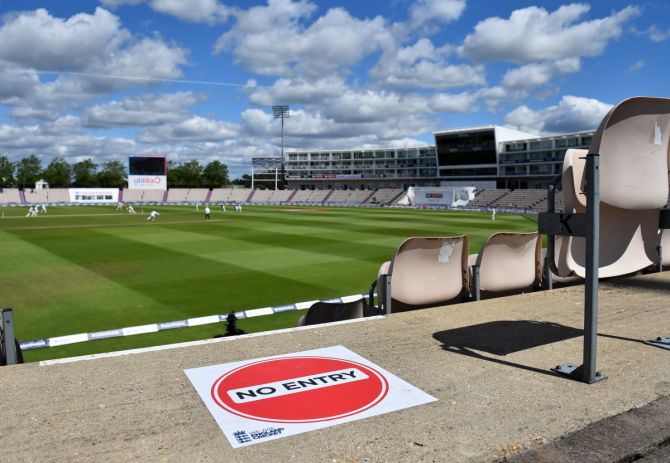
That resonance of willow raspingly striking leather.
That sonorous clatter of spread-eagled stumps.
The sound of international cricket, music to the ears of hundreds of millions in the Commonwealth, especially India, is back after a 128-day hiatus.
Not since a Test between India and New Zealand concluded at Christchurch on March 2 had a ball been hit with passion and purpose at the highest level. Such has been the pulverising impact of COVID-19.
The gentleman's game resumed in bio-secure, crowd-less, conditions at the Ageas Bowl, Southampton, with England hosting the West Indies in the first of three matches in the classical five-day format.
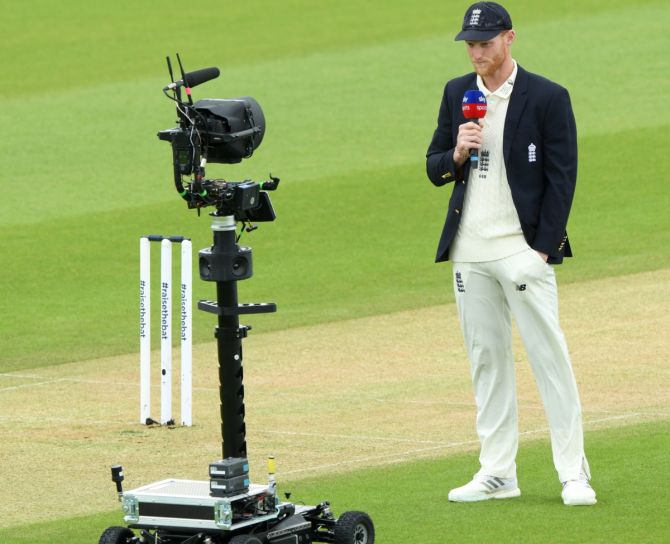
The English cricket season commences in April with a systematic programme of first-class and limited-overs competitions between counties before international fixtures get underway in May or June. This timeless tradition was rudely interrupted.
The England and Wales Cricket Board faced a loss of £380 million if the summer's schedule was wholly erased by the coronavirus.
Even if the revised international segment -- which includes a tour by Pakistan -- is staged and revenue from licensing of television rights is duly derived, the ECB would still be burdened with a £100 million deficit.
Tom Harrison, the body's chief executive, told the media: 'It is the most significant financial challenge cricket has ever faced.'
Other than the Ageas Bowl, only Old Trafford, Manchester witnessed the Tests with the West Indies.
These are venues with hotels incorporated in their infrastructure, thereby providing the isolation COVID-19 precaution demands.
The two teams were designated different floors, with no intermingling at any time. Indeed, they have been quarantined in this manner for weeks before battle uncoiled in the middle.
There was social distancing between the squads on the field as well; and no saliva was permitted to be applied on the ball to shine it.
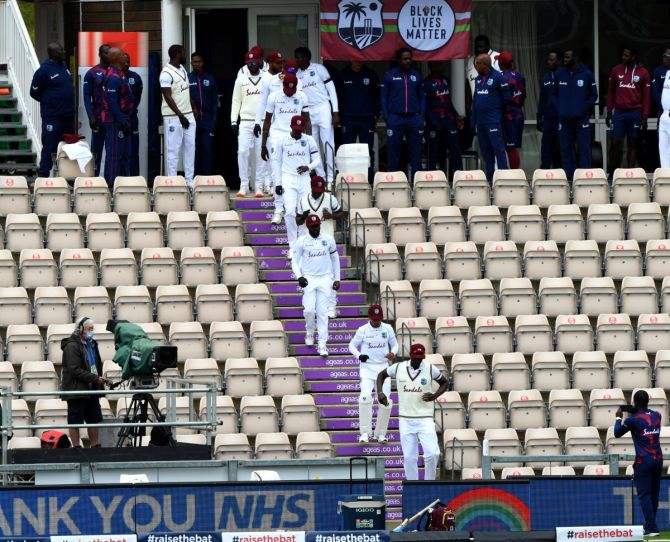
Test cricket, meant to be an even contest between bat and ball as prescribed by its founders and a complete examination of a player's prowess, has faced an existential threat, with the irresistible rise of first the one-day format and then the lowest common denominator of Twenty20.
After decades of wrangling within the International Cricket Council and with TV rights holders -- who provide fodder for cricket's cannons to fire -- a World Test Championship was inaugurated last year, with an envisioned knockout final at Lord's between the top two participants emerging out of a league.
At the same time, the England-West Indies series and the one to unfold between England and Pakistan are experiments that need to succeed.
Any serious outbreak of infection arising from these might deter continuation of the championship elsewhere, including India, who host England in January-March 2021.
A spokesman for the ICC said a decision on the future of the WTC will be taken 'when there is a greater understanding of the impact of the cricket that has been lost'.
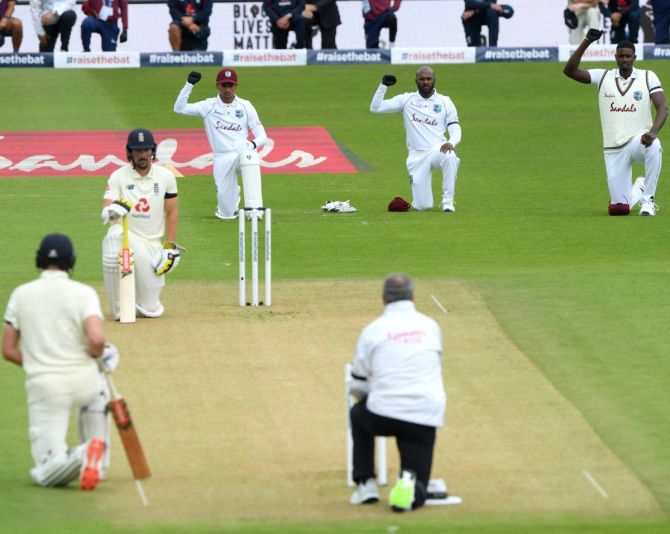
The amateurishly managed Board of Control for Cricket in India, though, are more concerned about their cash cow, the T20 Indian Premier League, falling through, leaving a $530 million black hole in its books.
Arguably, with India presently topping the WTC table, the ambition to be undisputed champions of cricket should take precedence over filling the BCCI's coffers.
However, if cases and deaths from the virus continue to escalate -- which the Massachusetts Institute of Technology has recently warned could happen in the absence of a silver bullet vaccine -- reigniting cricket in India could become an unsafe proposition.
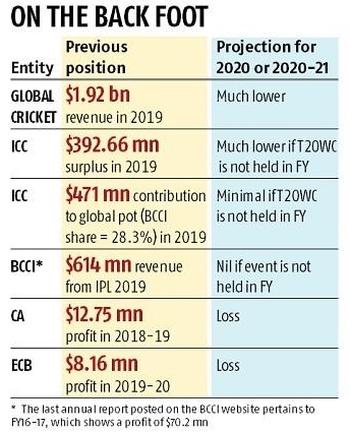
Cricket Australia, on the other hand, would financially benefit more from Tests at home with India in December-January than holding the ICC Twenty20 World Cup in October-November.
CA will be denied hundreds of millions of dollars if Virat Kohli and his band are unable to venture Down Under.
Their chief executive Kevin Roberts was quoted as remarking to reporters: 'We might not generate financial returns from that event (WT20) that are as significant as the international cricket season (,em>Tests with India).' This is because the Indian media disburse the handsomest licence fees.
There is even the unenviable possibility of the Test matches being played at a solitary venue to save CA's bacon.
Australian fast bowler Josh Hazlewood suggested the choice should then be the Adelaide Oval, which in his view has probably 'been the best cricket wicket in the last four or five years' in Australia. If India don't visit, CA would sustain a hit of $200 million.
The commerce of cricket is TV and sponsorship driven. But ghost-like stands repel rather than attract audiences.
It is action without atmosphere.
Besides, the froth on the business model is gate receipts, food and drinks, books and merchandise sales at grounds, particularly in England, Australia and South Africa.
Mitchell Starc, the left-arm Aussie speed merchant, feared the restrictions imposed on conducting matches render cricket boring.
To adjust to the harsh new reality, the UK's Daily Telegraph visualised cricket boards prioritising lucrative series and reducing loss-making ones, cricketers being forced to take pay cuts and Tests being shortened from five to four days. These could well become compulsions in a post-Covid world.
Feature Presentation: Rajesh Alva/Rediff.com














 © 2025
© 2025